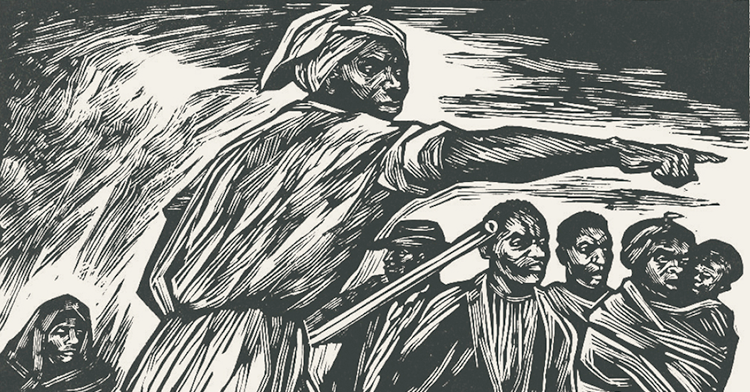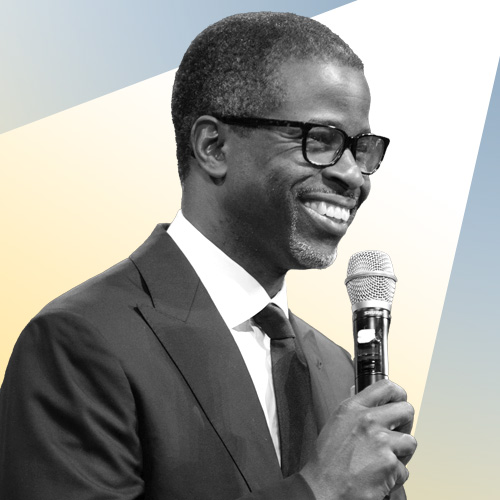The Rt. Rev. Melissa Skelton, a bishop in the Anglican Church of Canada, has a rare combination of gifts that most every ecclesial body would want in its leadership.
She grew up outside the church, so she can talk to folks for whom faith is not their first language. She worked for years in the corporate world and so gained experience in leadership she could apply in a training program for new Episcopal bishops. She was raised in the Southeast United States during the civil rights era and was sent into ministry by an African-American parish in South Carolina, where she sees deep parallels with Canada’s anguish over its history with its indigenous peoples. She has pastored congregations and taught in seminaries.
Drawing upon these various experiences and using them to enrich her work as bishop is similar to the challenge that all Christians face, she said -- “to be in the world but not of the world.”
“All that I can say is that the challenge is new in every moment and that in the end, it’s better to ask the real questions you have come to ask and, along with this, to make the real mistakes that you have come to make, given who you are and where God has called you to be,” she said.
Skelton was installed in 2014 as the ninth bishop of the Diocese of New Westminster in Vancouver. Before that, she was rector at St. Paul’s Episcopal Church, Seattle, Washington, and canon for congregational development and leadership in the Diocese of Olympia. She has also taught preaching at the evangelical Seattle School of Theology & Psychology.
She recently participated in an email interview with Jason Byassee, the Butler Chair in Homiletics and Biblical Hermeneutics at Vancouver School of Theology. The following is an edited transcript.
Q: It is popular these days for church leaders to talk about integrating business and theology. As someone with an MBA and corporate experience, how do you talk about such integration?
I’m suspicious of answering this question in a general way, in that businesses are not all alike in what they value and how they operate. What I can say is this: the experience I gained in the two excellent business environments I was privileged to work in taught me to listen to those I wanted to serve, to develop people as a way to build the capacity of the organization for its work, and to focus and to work very hard!
These three things are, of course, also important in the church. I can also say that they have been central to whatever accomplishments I’ve made in organizations serving the church.
Q: Christian institutions in the West are struggling for resources and purpose. As the leader of an important one, how do you nudge an institution toward faithfulness and purpose and away from the anxiety that traps so many of us?
I believe in helping organizations (including parish churches) focus on their core purpose, mount improvement efforts around dimensions of their core purpose, and move more deeply into the specific personality and approach that is their ecclesial identity. I believe that prayer should be the foundation of all this work. And I believe that we can feel anxious but that it should not stop us either from praying or from doing the work I just mentioned.
Q: You’ve been part of training programs for Anglican bishops and have described their progression in three years of leadership as being terrified in year one, bored in year two and on-board in year three. How do you hope to avoid this career arc in your ministry as bishop in Vancouver?
The only ways I know to avoid the dangers of boredom and distraction are, first, to work on not getting bored and, second, to question regularly what I agree to do outside the diocese. For me, not getting bored has to do with working in the areas that give me life and that the diocese actually needs.
The questions I ask myself about potential activity outside the diocese are, “Does this activity actually help strengthen congregational leaders?” and, “Does this activity help to offer what we are doing in parish development or other priority areas more broadly in the Anglican Church?”
If the answer is no to either of these questions, well, I better think twice about doing it.
Q: What’s the biggest challenge moving from pastor of a fast-growing parish to bishop of an Anglican diocese?
One of the biggest challenges is that becoming a bishop, at least in this diocese, means moving away from doing things directly to equipping others to do the work. This has been and continues to be hard for me in that I love the direct work -- shaping liturgies, meeting newcomers, teaching, riding the rhythm of the church year with a faith community.
Another big challenge is thinking systemically in a bigger system and learning to stay focused on the things that are most likely to effect the greatest positive change in the system during my episcopacy and afterward.
Q: You’ve spoken often of the need to plant new faith communities and to revitalize existing parishes. But how do we actually move resources and energy and ambition in a missional direction? That is, how do we create hunger for church growth where all the narratives seem more dedicated to stasis at best or hand wringing over decline?
The approach I’m taking is to work with those in the diocese who are most interested in revitalization and in undertaking new initiatives related to congregational growth and development.
I got this idea (focusing first on those who are “ready to go”) from organization development professionals who counsel others to work in the most promising arena with those most interested in doing the work. In terms of resources, I find that recognition and even modest financial rewards can create energy and a kind of holy ambition for the work of revitalization.
Q: It is striking that you’ve taken on educating and training folks, especially new and aspiring leaders, to start and revitalize new communities of faith. How do you prepare them?
By immersing leaders in a training experience that combines learning and working with theory with the equipping with specific skills related to congregational development. Such training experiences are fairly intensive and involve engagement with frameworks from both congregational development and organization development; practicing facilitation skills; giving and receiving feedback; casework; and the planning of, doing and reflection on congregational development projects in the parish.
Q: You’ve lived and worked in a variety of settings, from the South to the Midwest to New England to the Pacific Northwest to now the Lower Mainland of British Columbia. How do you pay attention to a new place so as to know the particular people you’re leading and also bring experiences from other places that can be enlightening?
Oh my -- this is a challenge.
In many ways, it’s similar to the challenge of all Christian people, isn’t it? To be in the world but not of the world?
I am constantly trying to be in the Lower Mainland, the Sunshine Coast and the Fraser Valley in British Columbia -- listening to the joys, the history, the culture and the challenges of these areas. And along with this, I am trying to offer the experience I’ve been given from a western Washington urban parish, a U.S. East Coast seminary, and both a Midwestern and a coastal Maine corporate environment. And then there is my entire upbringing in the Southern United States.
All that I can say is that the challenge is new in every moment and that in the end, it’s better to ask the real questions you have come to ask and, along with this, to make the real mistakes that you have come to make, given who you are and where God has called you to be.
Q: You’re a boundary-crossing figure as an Anglican bishop who’s also taught in an evangelical seminary (Seattle School of Theology & Psychology). How can the church cross boundaries of evangelical/mainline/Catholic more readily and work together without surrendering our particular gifts?
By prayer, meeting people where they are, cultivating both a listening heart and an appreciative mindset, and being as candid as we can be about who we are and, out of this, what we have to offer.
I was lucky in that I was rector of a church that was clear about its love of mystery, beauty and awe in the presence of God. And so when evangelicals showed up in our church looking to find their way back to church, we could embrace them and invite them in out of that same mystery, beauty and awe for God.
Thus, what I experienced was a very organic process of crossing boundaries through getting to know people and sharing with them what we were about. Out of this came a deeper and deeper involvement in, for instance, The Seattle School, and my own increasing appreciation for the school and its many sincere evangelicals.
Q: There was a time when you weren’t in the church. How does this memory help you think about the church’s calling to reach out beyond our borders?
I did not grow up in the church, so I have many memories of life outside the church. The biggest thing I learned from this and from working in the field of “consumer ethnography” in the business world is that it is very, very important to understand people’s experience and questions as we, the church, shape how we reach out to them. We need to “seek first to understand and then to be understood” (to steal a phrase).
Q: Somehow, with everything else you’ve done, you’ve also found time to teach preaching. What’s the role of the preached Word in raising up new leaders, both lay and ordained?
In my experience, it’s in preaching that everything comes together: biblical interpretation, theology, presence, spiritual life, the expression of ideas and emotions, physicality, and on and on.
For me, then, the preached Word shared by a skillful preacher has the ability to serve as an event through which people are inspired, invited and enticed into a life of leadership. This happens both because the Word has power in and of itself and because the Word mediated through the presence of a well-formed preacher draws others in.
Q: There is an approach to reaching out beyond the church’s current walls that relies on dumbing down our Christian distinctives, dropping the creeds and liturgies. You’ve said that you see Anglicanism’s particular gifts in something older, and you find younger generations warming to that. Why and how?
I am no advocate of dumbing down or making what we do more generic. I believe we should go the opposite path -- drawing on, teaching about and embracing the ancient roots of our faith and assisting those in our churches to enter into the depth of Christian life and practice.
In my experience, many younger people are famished for this kind of substantial food in their life of faith. Many from other ecclesial traditions are also famished for this kind of food. I often think that these two groups help us rediscover where the “gold” of our own tradition lies buried.





